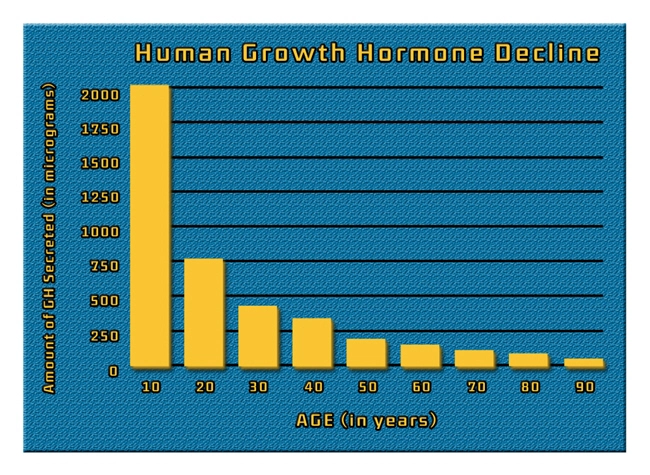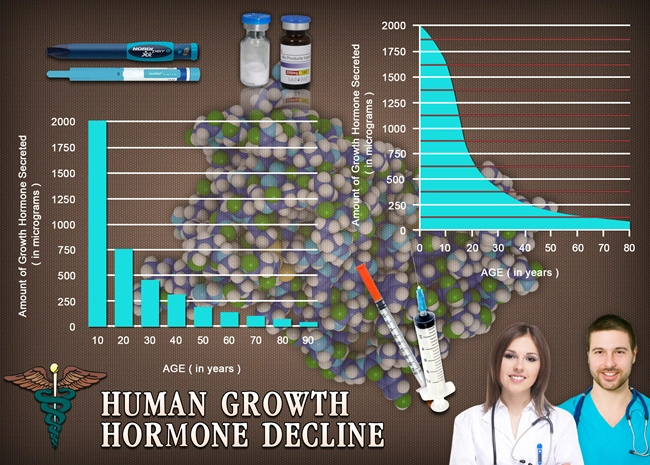
While diet and exercise are integral to successful weight loss, our Hormones strongly impact how easy it is to lose weight or maintain a healthy weight. Hormone Imbalance is a major barrier to successful weight loss for millions. In this article we discuss how nine hormones influence your ability to control your metabolism, hunger, and digestive function.
Cortisol and Overeating
 Stress and hunger are strongly related. Anyone that's had a deadline approaching or felt the crunch of procrastination has likely succumbed to stress-related eating of junk food. Cortisol is the primary hormonal component of stress response. Cortisol puts your body in fight mode, speeding up heart rate and increasing readiness. It also makes you crave foods with lots of sugar and carbs that provide quick calories with little nutrition.
Stress and hunger are strongly related. Anyone that's had a deadline approaching or felt the crunch of procrastination has likely succumbed to stress-related eating of junk food. Cortisol is the primary hormonal component of stress response. Cortisol puts your body in fight mode, speeding up heart rate and increasing readiness. It also makes you crave foods with lots of sugar and carbs that provide quick calories with little nutrition.
When body and mind are barraged with physical and mental stress, it leads to chronic stress. This condition makes it very hard to stay keep a healthy weight because your body is always primed, to the point of exhaustion and fatigue, and is always searching for the short-term high of unhealthy foods.
Insulin, GLP-1, Blood Sugar Maintenance and Satiety
Obesity and Insulin Resistance are a dangerous, self-reinforcing pair. Our bodies use insulin to help transport and store fat. It's critical and we would die without it. When we overeat foods with a high glycemic index, the pancreas has to pump out extra insulin to move glucose. Our bodies use what they can for energy and the rest goes into storage.
Over time, this can lead to Insulin Resistance, which means that it takes more and more Insulin to remove glucose from the blood stream, leaving dangerously high levels of blood sugar in circulation, which causes much of the damage associated with diabetes.
Glucagon-Like Peptide-1 (GLP-1) is a hormone related to Insulin. GLP-1 is secreted by the intestines in response to carb exposure. This both triggers feelings of fullness and signals to the pancreas that it's time to get to work. Type-2 Diabetics often don't produce enough GLP-1.
Ghrelin, NPY, and Hunger
Ghrelin is an important hormone that often contributes to obesity. Think of Ghrelin as your body's dinner bell. It is the timekeeper of the digestive system, and its influence becomes greater the longer it has been since you've eaten. Normally, Ghrelin levels subside over the course of a meal. Ghrelin levels also influence natural HGH Production.
As calories directly from food become less readily available, your body makes Growth Hormone to pull stored calories from body fat. This is one reason why intermittent fasting is an effective way to lose weight, boost HGH Levels, and control blood sugar. Neuropeptide Y also modulates hunger. It downshifts your metabolism and energy consumption between meals to protect against starvation. Chronically high NPY Levels can cause ongoing fatigue and encourage excessive meal-size.
Leptin, Peptide YY, Cholecystokinin, and Feeling Full
Leptin is the companion hormone of Ghrelin. Ghrelin makes you hungry, Leptin triggers satiety. As your digestive system works in food you're eating, it sends Leptin to the Hypothalamus to send the signal that it's time to end the meal. Cholecystokinin is a byproduct of the gut-biome which triggers the release of Leptin. Peptide YY is another hormone that signals for fullness, and this hormone is most strongly triggered by fat, which is why fat makes us feel full quicker. PYY Deficiency causes obesity and elevated body fat.
Estrogen Promotes Body Fat Accumulation
While women produce far more Estrogen than men, it's still a part of both sexes lives. Estrogen is directly correlated with body fat. It's actually why women naturally have a higher normal body fat percentage than men. Body fat is actually a key driver of Estrogen Production. Obesity can lead to Estrogen Imbalance, which is why obese men often develop gynecomastia (the development of breasts).
Sex-differences can men to develop metabolic syndrome in response to elevated Estrogen Levels, which can lead to obesity and insulin-resistance. For women, low Estrogen Levels can also lead to the development of central obesity after menopause.
Contact Us Today For A Free Consultation
Dear Patient,
Once you have completing the above contact form, for security purposes and confirmation, please confirm your information by calling us.
Please call now: 1-800-380-5339.
Welcoming You To Our Clinic, Professor Tom Henderson.

- No Gym since COVID-19? No Problem! [Last Updated On: September 8th, 2025] [Originally Added On: January 12th, 2021]
- Video - Growth Hormone Builds Muscle and Burns Fat! [Last Updated On: March 5th, 2025] [Originally Added On: October 12th, 2021]
- Growth Hormone and Fitness [Last Updated On: February 15th, 2025] [Originally Added On: October 12th, 2021]
- Growth Hormone and Creatine [Last Updated On: February 15th, 2025] [Originally Added On: October 12th, 2021]
- Growth Hormone boosts Metabolism! [Last Updated On: February 13th, 2025] [Originally Added On: October 12th, 2021]
- Testosterone and Muscle Building [Last Updated On: February 13th, 2025] [Originally Added On: October 12th, 2021]
- Testosterone and Running [Last Updated On: February 14th, 2025] [Originally Added On: October 27th, 2021]
- Testosterone and Exercise [Last Updated On: February 15th, 2025] [Originally Added On: October 27th, 2021]
- HGH and Physical Fitness [Last Updated On: February 12th, 2025] [Originally Added On: October 28th, 2021]
- Boost HGH with Squats! [Last Updated On: February 15th, 2025] [Originally Added On: October 28th, 2021]
- Blood Flow Restriction Training [Last Updated On: October 9th, 2025] [Originally Added On: December 1st, 2021]
- Unlocking the Power of Your Potential: A Sleek and Healthy Approach to Human Growth Hormone and Fitness [Last Updated On: February 15th, 2025] [Originally Added On: February 15th, 2025]
- Unwrapping the Powers of Creatine - A Brain and Brawn Booster! [Last Updated On: February 15th, 2025] [Originally Added On: February 15th, 2025]








